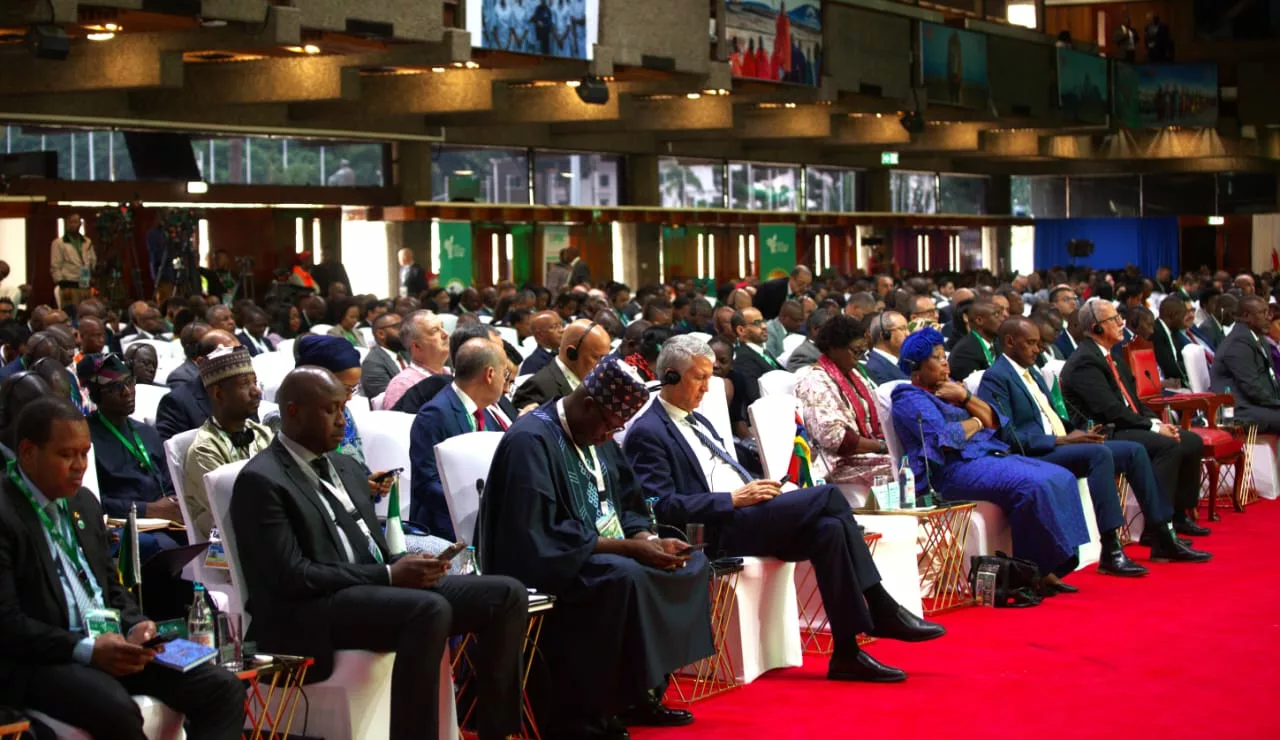|
Getting your Trinity Audio player ready…
|
Writes Sally Nyakanyanga
Africa African Heads of State and Government endorsed the Nairobi Declaration on Fertiliser and Soil Health during the Africa Fertilizer and Soil Health Summit, which was held last week in Nairobi, Kenya. This move by African leaders and relevant stakeholders seeks to enhance the promotion of soil health for sustainable food systems across Africa.
The meeting was convened at a time when countries in Africa and globally are experiencing the adverse impacts of climate change. In Southern Africa, Zimbabwe in particular has declared this year a national state of disaster due to the El Nino weather phenomenon, which has left the country facing a dire crisis as half of the population is in urgent need of food assistance until March next year. The El Niño weather phenomenon has triggered a dry spell across Southern Africa and led other countries in the region, such as Malawi, and Zambia to also declare states of national disaster because of crop failures.
The changing climatic conditions on the continent demand urgent action to equip and prepare itself for such calamities. The need to promote fertiliser and soil health management in Africa becomes crucial in stimulating sustainable pro-poor productivity growth in African agriculture. Moreso, agriculture is the backbone of the continent, as many depend on it for survival and sustenance.
In his presentation, the president of Zimbabwe, HE Emmerson Dambudzo Mnangagwa, emphasised the need to deliberately support and increase investments in agriculture.
“It is unfortunate that despite the inherent potential, Africa currently spends billions of dollars in food and fertilizer imports per year. Greater efforts must be made to leverage the availability of raw materials for the local production of mineral fertilizers and reduce our over-reliance on imports,” he said.
The Director of Agriculture, Food Security, and Environmental Sustainability at AUDA-NEPAD, Ms Estherine Lisinge-Fotabong pointed out the need for sustained support as innovative approaches are imperative for the long-term investment in soil health restoration, despite the few immediate benefits.
The Nairobi Declaration articulates the key discussions, highlighting the need to foster multi-stakeholder transformative partnerships and investments in an attempt to drive policies, finance, research and development, markets, and capacity building for fertilizer and sustainable soil health management across Africa. Thirteen commitments were made during the summit.
Furthermore, the AFSH Summit endorsed a 10-year Action Plan for Fertilizer and Soil Health, the Africa Financing Mechanism (AFFM) for the Action Plan, and the Soil Initiative for Africa framework, which represents ambitious long-term efforts to systematically enhance the health and productivity of Africa’s soils.
The Summit was held under the theme, “Listen to the Land” with various stakeholders exploring the current condition of Africa’s soils in a bid to implement urgent and appropriate restorative measures. The Chairperson of the African Union Commission, Moussa Faki, underscored the need for accelerated action on the commitments of the Nairobi Declaration to make up for lost time and advance towards the goals of earlier declarations, including the Abuja, Malabo, and Maputo Declarations, as well as the Comprehensive African Agricultural Development Programme (CAADP).
“Some African countries produce fertilizers but we depend mostly on inorganic fertilizers, making them very expensive for our farmers. Yet the African Centre for Fertilizer Development based in Zimbabwe has been in existence since the 1980s. We must optimise the use of such existing Continental assets to boost local fertilizer production and deliver quality fertilizers to African farmers at affordable prices. This is imperative if we are to improve the Continent’s agricultural sector, key for our food sovereignty and security. These investments should also be reflected in our national budgets.,” he said.
According to experts, it has been estimated that the continent loses over US$4 billion worth of soil nutrients each year, severely risking Africa’s ability to feed itself. Yet, a broad base of African farmers neither have access to fertilizers nor can they afford inputs needed to add life to their soils to reverse the downward spiral of the degradation of the physical environment
Dr. Nangolo Mbumba, President of the Republic of Namibia, highlighted the need for a holistic approach as a key in an attempt to address food demands in Africa and ensure the long-term sustainability of global food production systems.
“A balanced approach to soil fertilizer management is critical. Integrating mineral and organic fertilizers and other soil management techniques to create a sustainable agricultural system that meets both the current and future food needs without compromising the soil health of the continent”, he said.
